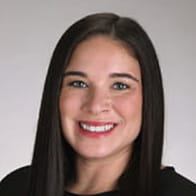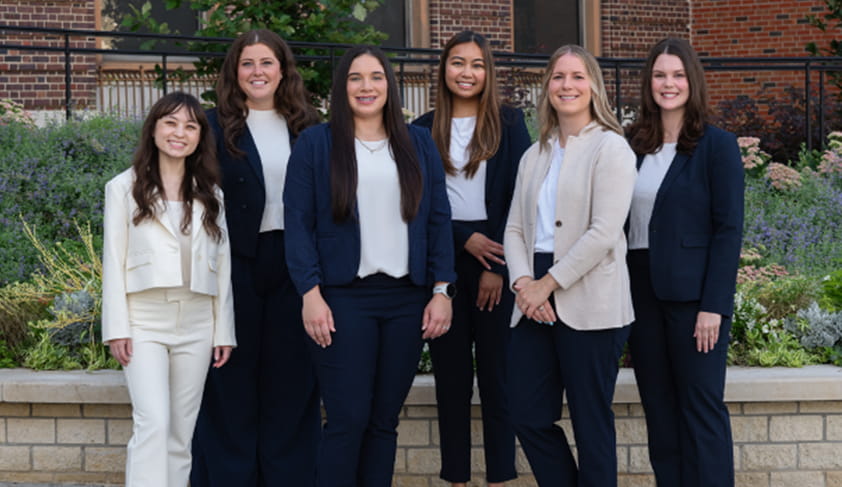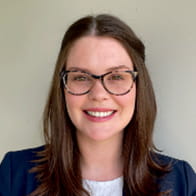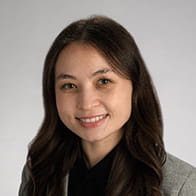- Home
- Professionals
- Residency Programs and Fellowships
- Pharmacy Residency
- Pharmacy Residency in Kansas City
- Oncology Pharmacy Residency



The PGY2 oncology pharmacy residency program builds upon a Doctor of Pharmacy (PharmD) education and PGY1 pharmacy residency training to develop pharmacist practitioners with knowledge, skills and abilities as defined in the educational competency areas, goals and objectives for advanced practice areas. Residents who successfully complete PGY2 residency programs are prepared for advanced patient care or other specialized positions along with board certification.
The University of Kansas Health System offers an ASHP-accredited PGY2 Oncology Pharmacy Residency. The University of Kansas Hospital is an academic teaching hospital with 1,000+ beds, and 116 of those are dedicated to hematology, oncology and bone marrow transplant patients. The University of Kansas Cancer Center is designated as a comprehensive cancer center by the National Cancer Institute (NCI) and has 2,600+ outpatient cancer care visits weekly. This residency centers on the development of pharmacists who will become dynamic patient advocates who collaborate with an interdisciplinary team to provide evidence-based pharmacotherapy and heighten patient-centered results. Through various clinical, practice management and project experiences, residents will become competent at providing optimal drug therapy for patients with cancer and act as a leader in advancing patient care.
Length of program: 12 months, starting in July
Number of positions: 4
PGY2 Oncology Residency Supplemental Manual



Hometown: Nashville, Tennessee
Pharmacy school: University of Tennessee Health Science Center
PGY1: Centennial Medical Center
Clinical interests: Solid tumor oncology, BMT, cellular therapy, immunocompromised infectious diseases
Hobbies: Reading, trying new restaurants, traveling
Research project: Assessing the Impact of Vincristine Omission on Patient Outcomes in Diffuse Large B-cell Lymphoma
Why I chose The University of Kansas Health System: I chose The University of Kansas Health System due to the robust oncology rotation experiences available and opportunity to work with diverse and complex patient populations. During my interview, I saw firsthand how both leadership and preceptors are deeply committed to supporting the residents and fostering their growth.

Hometown: Redlands, California
Pharmacy school: Loma Linda University School of Pharmacy
PGY1: The University of Kansas Health System
Clinical interests: BMT, CAR T
Hobbies: Embroidery, travel, reading
Research project: Effect of debulking chemotherapy on incidence and severity of rituximab infusion reactions given inpatient
Why I chose The University of Kansas Health System: When searching for a residency program, I knew I wanted to be challenged by complex clinical cases, be exposed to a large variety of high-level-of-care patients with diverse backgrounds, and have the opportunity to be a pharmacist that practices as part of an interdisciplinary team. After doing my PGY1 at the health system, I was confident the PGY2 in oncology would provide me the training I need to become a pharmacist that can provide the best care possible for patients. Additionally, everyone in the program is so friendly, supportive and happy, which made me feel confident that not only would I grow as a pharmacist, but have fun doing so!

Hometown: Blue Springs, Missouri
Pharmacy school: University of Missouri - Kansas City School of Pharmacy
PGY1: The University of Kansas Health System
Clinical interests: Malignant hematology, solid tumor oncology, cardio-oncology
Hobbies: Reading, spending time with friends and family, playing board games, doing puzzles, trying new restaurants and traveling
Research project: Real World Data on Elacestrant Use in Second Line and Beyond for HR+ HER2- Metastatic Breast Cancer Patients
Why I chose The University of Kansas Health System: I chose The University of Kansas Health System because I had such a great experience here as a PGY1 resident. Pharmacists are an integral part of the healthcare team here and pharmacists’ recommendations are welcomed and valued. I wanted to do my oncology residency at a large academic center that treated complex patients with a variety of cancers so I would be able to learn as much as possible. It was clear to me that everyone involved in this program truly cares about their residents and wants them to succeed. I knew I would grow the most as a new pharmacist where everyone was eager to learn, teach.

Hometown: Kansas City, Missouri
Pharmacy school: University of Missouri – Kansas City
PGY1: The University of Kansas Health System
Clinical interests: Hematology, BMT, palliative care
Hobbies: Spending time with family and friends, trying new restaurants and coffee shops, and playing pickleball
Research project: Tarlatamab versus standard of care chemotherapy for second line treatment of small cell lung cancer (SCLC)
Why I chose The University of Kansas Health System: From my experience with The University of Kansas Health System as a PGY1, I was drawn to the culture, innovation and extensive opportunities that are offered for cancer care that I knew would allow me to grow my knowledge and skill set in oncology/hematology. Additionally, the cancer care pharmacy team was a pivotal reason why I chose the health system, with its welcoming and family-like community that created a vibrant learning environment. It is evident that the residency program, from its leadership, preceptors and mentors, provides the utmost support and cultivates a truly well-rounded learning experience and outstanding care for their patients.
The University of Kansas Cancer Center is 1 of fewer than 60 National Cancer Institute-designated comprehensive cancer centers nationwide.
Additional facts about the cancer center include:
*The AIP learning experience is a 4-week experience in which the resident covers a service independently. The goal is for the resident to gain the confidence and experience of covering a service independently prior to entering the workforce. This is done once the resident has sufficient experience in an area of practice.
Each resident has 6 weeks for electives. These can be split into two 3-week rotations or one 4-week rotation and one 2-week rotation.
Elective learning experiences include:
The PGY2 oncology resident will staff 1 evening each week from 3 to 7 p.m. inpatient and approximately every 4th weekend (Saturday and Sunday) where they will staff independently with the hematology inpatient rounding service. Residents receive 1 day off as a compensation day the week following their weekend staffing.
Residency Manual – PGY2 Oncology Pharmacy Residency Supplemental Manual
National matching services (NMS) code: 618660
We are an equal employment opportunity employer without regard to a person’s race, color, religion, sex (including pregnancy, gender identity and sexual orientation), national origin, ancestry, age (40 or older), disability, veteran status or genetic information.
We are an equal employment opportunity employer without regard to a person’s race, color, religion, sex (including pregnancy, gender identity and sexual orientation), national origin, ancestry, age (40 or older), disability, veteran status or genetic information.